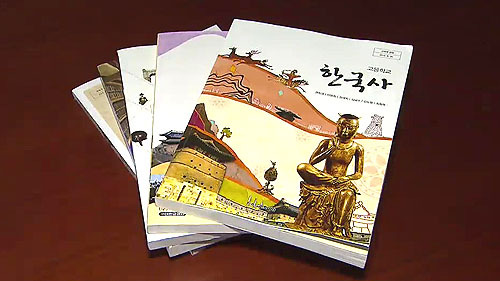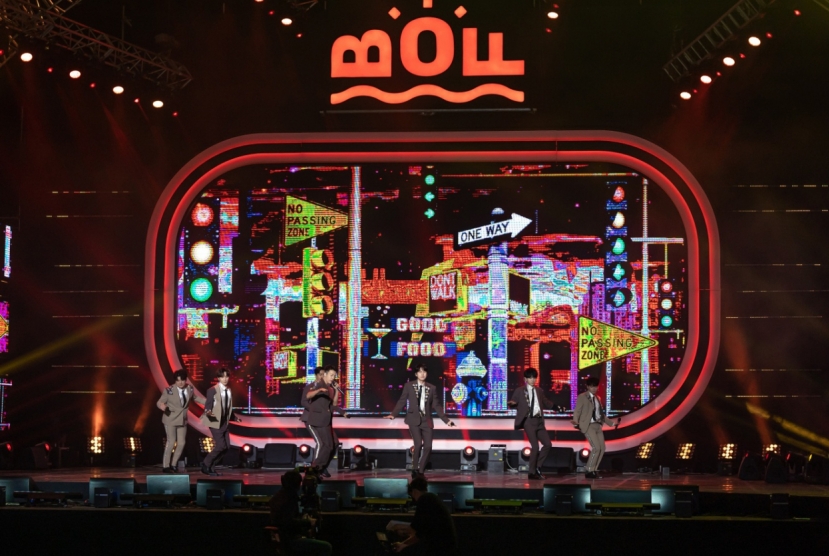State intervention not solution to history textbook conundrum
Controversy over errors, alleged biases prompt conservatives to call for return to government control of textbooks, Opponents concerned that state-authored content
By Yoon Min-sikPublished : Jan. 15, 2014 - 20:09

As controversy over the historical accuracy of a textbook snowballed into an ideological war, there is talk of reinstating a system of all schools using government-published textbooks. But the idea is facing opposition from scholars who warn against the hazards of a unilateral view of history.
The South Korean government recently said that it is mulling whether it should bring back a state textbook. The state textbook system started in 1974 during the 16-year rule of former president Park Chung-hee, and was abolished in 2002.
“I think it is the state’s obligation to teach history with a single textbook,” said Ruling Saenuri Party chairman Rep. Hwang Woo-yea.
The relaunching of state textbooks would presumably help avoid disputes over textbook content, such as the one surrounding the book by Kyohak Publishing Co.
Scholars say, however, that creating state textbooks may only put off the inevitable confrontation.
“It is impossible to unify a perception of history (for all people),” said Professor Ahn Byung-jik of the Department of Western History at Seoul National University.
“A state history book is likely to reflect the viewpoints of whatever administration is in power. When a new government is in office, it will be tempted to revise history books,” he said. As a result, the quarrel over textbook content will be elevated to a struggle between administrations, Ahn warned.
Even if the country does not push ahead with a state textbook, if the government provides specific criteria for authors to follow, the same result is likely.
Kwon Nae-hyun, an associate professor at Korea University’s department of history education, pointed out that if the government dictates what textbooks should say, as was reported Tuesday, its views will be virtually identical to those of state textbooks.
“The state textbook system is not the fundamental solution, because the fundamental issue is not the textbook certification system itself. The real problem is that the Education Ministry does not put enough time and effort into filtering out faulty textbooks,” said Cho Han-kyung, the president of the Association of Korean History Teachers.
The government move is seen by many as a last-ditch attempt to publish a textbook that it prefers, after Kyohak’s book was avoided by the majority of the schools. The sentiment was even shared by members of the ruling party.
“It’s like depending on the governmental authority after losing a fight,” Rep. Ha Tae-keung said in a radio interview last week. He said the move is too “infantile” and totally misses the point.
Many have asked why the government is pushing for Kyohak’s textbook, which was deemed unfit by most high schools and historians.
Last year, local historical institutes such as the Korean History Research Association announced that Kyohak’s book contained 298 cases of slanted descriptions. The Education Ministry in effect covered up the book’s flaws by ordering all textbooks to revise their content.
After some 20 schools had been pressured by students, parents and civic groups to withdraw their selection of the book, the ministry and the ruling party said the schools were unlawfully pressured by left-leaning groups.
“The Education Ministry should be saying, ‘We will not allow textbooks like that of Kyohak.’ Ironically, it has been going out of its way to protect the book since last year,” said Cho.
There are two key points in the Kyohak controversy: One is its numerous errors and the other is the accusation that its content reflects the political views of the conservative ruling party.
The background of its authors suggests that the issue of right-tilting bias may have been inherent.
In the mid-2000s, a group of conservative scholars commenced on a mission to create new history textbooks. These “New Right” scholars claimed existing textbooks adopted viewpoints based on “biased research by left-leaning historians” and set up their own organization called the Association for the Contemporary Korean History.
The CKH resurfaced last year when it was revealed its former and current presidents had participated in writing the textbook by Kyohak.
“Authors of Kyohak’s book had defined existing books as left-leaning. The problem is, they ended up writing an error-laden book in their bid to provide a differentiated book,” said Cho.
The textbook bedlam appears to be dying down as schools prepare for the upcoming school year, but the wrangling is far from over. Every administration since 2002 has seen some form of ideological dispute about what schools should be teaching.
As an alternative, Ahn suggested that schools should use multiple textbooks from different publishers. He said a completely objective historical viewpoint is impossible, since no book is totally free of the ideological inclination of its author.
“Teachers and textbooks should refrain from ‘injecting’ knowledge into students. Rather, students should be provided with different interpretations of history and decide for themselves which view they agree with.”
By Yoon Min-sik (minsikyoon@heraldcorp.com)







![[KH Explains] How should Korea adjust its trade defenses against Chinese EVs?](http://res.heraldm.com/phpwas/restmb_idxmake.php?idx=644&simg=/content/image/2024/04/15/20240415050562_0.jpg&u=20240415144419)











